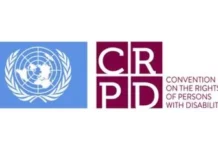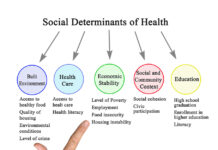A new Viewpoint published in JAMA Psychiatry argues that federal initiatives must be developed to authentically invest in a research workforce with lived experience of mental illness. The authors, David Kimhy at Mt. Sinai, Nev Jones at the University of Pittsburgh, and Lisa Dixon at Columbia University, argue that the current available treatments for “serious mental illness (SMI)” demonstrate only a modest efficacy and that innovation and improvement in outcomes and efficacy may increase if an earnest effort is made to incorporate and invite individuals with lived experience of mental illness into the academic workforce.
For Nev Jones at least, this has a personal element—she was diagnosed with schizophrenia in young adulthood and makes mentoring students with lived experience a key part of her mission at the University of Pittsburgh.
Kimhy, Jones, and Dixon write, “Individuals with lived experiences of psychosis possess unique insights and in-depth understanding of issues related to treatments and recovery, as well as the phenomenology of clinical targets. This knowledge base presents a high potential for innovation in the design of interventions studies and clinical services for individuals with SMI.”
 The topic of “inclusion” frequently comes under criticism in social justice movements—inclusion will never be enough. Oppressed, marginalized, and harmed people want to be invited, invested in, welcomed, and desired. “Nothing about us without us” should be common sense by now, but it’s not. Academia/mental healthcare in general and the epistemic injustice and violence therein frequently discounts and stigmatizes the lived experience of psychosocially disabled people. Unfortunately, the case must be made over and over again for the inclusion of lived experience in academia.
The topic of “inclusion” frequently comes under criticism in social justice movements—inclusion will never be enough. Oppressed, marginalized, and harmed people want to be invited, invested in, welcomed, and desired. “Nothing about us without us” should be common sense by now, but it’s not. Academia/mental healthcare in general and the epistemic injustice and violence therein frequently discounts and stigmatizes the lived experience of psychosocially disabled people. Unfortunately, the case must be made over and over again for the inclusion of lived experience in academia.
In their Viewpoint, Kimhy, Jones, and Dixon argue that investing in an academic workforce—researchers, mentors, scholars, and students—with lived experience of SMI/psychosocial disability is the obvious next step in innovating and improving mental healthcare treatment, intervention, and delivery.
They write, “Efforts by the psychiatry research community to address these concerns have focused on incorporating input from stakeholders (e.g., patients with SMI) into the design of clinical trials, often by adding individuals with lived experiences of psychosis to the trials’ advisory committees. However, these efforts have been relatively superficial, with such committees often set up long after the studies’ design and funding have been finalized, leaving little room for stakeholders to substantially influence the studies’ focus and design.”
They cite examples like Pat Deegan, PhD, a psychologist with schizophrenia who has made major research contributions to the conceptualization of recovery and shared decision-making, and Kay Jamison, PhD, who frequently shares her experience with depression and mania in her youth and who has innovated treatment and research on bipolar disorder.
“However, the contributions of Deegan and Jamison are the exception to the rule, as there are few individuals with lived experiences in research leadership positions.” Kimhy, Jones, and Dixon note.
In 2017, a large anonymous survey with close to 2,000 participants sought to document the experience of mental illness/psychosocial disability among psychology faculty and doctoral students across the USA. Only a single participant (0.05%) identified themselves as having a current psychotic disorder, and only seven total participants disclosed a past diagnosis of psychosis (0.36%). Not a single faculty member disclosed a diagnosis of psychosis in the United States.
The 2017 survey did its best to account for the possibility of stigma and ableism by ensuring anonymity during data collection. But the study would not have been able to identify the participants who have had experiences of SMI but who, despite anonymity, do not wish to disclose their experience with SMI or psychological distress because of self-stigma or internalized ableism.
The university system in the US is already unforgiving for research students, even those without a serious mental illness. But with an SMI it can feel impossible. Indeed, for many, psychiatric diagnoses are given in early adulthood and college years, the years where the foundation for a research career are created.
“Consequently, many individuals with lived experiences face lack of accommodations and support in their attempt to ‘catch up’ on necessary training,” the researchers write. “Furthermore, even if an individual with lived experiences is able to complete their undergraduate education and apply to graduate training, they often have to conceal their mental health history or risk social stigma and discrimination by faculty and programs concerned about investing precious educational training lines in candidates who may seem to be ‘too risky.’”
The authors importantly note that this problem is uniquely American. The United Kingdom has a mandate that includes individuals with lived experience for all studies funded by the National Institute of Health Research. Similarly, the Wellcome Trust requires that there is a person with lived experience present in each step of the grant-making process.
Thus, the authors recommend the following:
“To address the marked disparities that available indicators, including our collective personal experiences, suggest exist, we argue that dedicated federal initiatives need to be developed. Such initiatives should aim to “level the playing field” for individuals with lived experiences aspiring to develop research careers.”
They add: “The programs would allow individuals with lived experiences to develop a track record of productive research work and become competitive candidates for graduate research training, while also potentially minimizing concerns by graduate research programs about admitting trainees with lived experiences. Finally, public examples of personal (academic) success play a key role in reducing stigma.”
****
Kimhy, D., Jones, N., & Dixon, L. (2022). Investing in a research workforce with personal experience of serious mental illness. JAMA Psychiatry. Published online August 3, 2022. doi:10.1001/jamapsychiatry.2022.2026 (Abstract)















Sam: Beautiful insights and questions are conveyed in this synopsis. You allude to the context in the initial words.
“Ableism, stigma, and prejudice can be insurmountable barriers for psychosocially disabled people in academia, but the federal government could help fix this problem.”
In becoming involved within our movement in Louisville, an article for the Disability Rag would be written after experiencing Justin Dart’s speech to the Alternatives Conference in Philadelphia. At what point I ask does a human being become “psychosocially disabled”? In the struggle to participate in or outside of the academy?
In attending the Independent Living Movement Conference in D.C., to have met Ed Roberts and begin to understand the issue of design, design, design only to be dismissed, dismissed, and dismissed when trying to convey this affirmation into the planning and design community/governance in Louisville requires further discussion.
For when you reference Federal Government, do you see this body as a static element? The academy, too being somewhat ossified in how learning works in the Western Mind?
Seemingly, one is challenged to create the value in an economy that requires some form of finance. Time would be spent while in D.C. to also visit the Comptroller of the Currency’s Office. For once back in the community, if one or one’s family finds it difficult to borrow resources and then pay the debt off, how does the issue of competition or collaboration strengthen the process of affirmation for difference? And in a strange way, the currency that once occupied vaults seemingly is now transmitted in some form of a pixelated currency. Also, the structure by which sound is transmitted that morphs into earbuds. But is anyone listening or understanding our challenges?
Seemingly, the mantra of Unity creeps in and pushes those who think differently beyond the margins. The challenge seems to be one NOW of how to write a scientific paper in a community/country that affirms LIFE. In driving back to Arkansas, a visit to the site of New Madrid would occur. And within the visitor’s center would be the simple material oriented about how an earthquake realigned the river.
Even Laurence Santrey’s book about a Young Albert Einstein seems to realize insight into the problems aligned with governance in The Academy, Countries and the Cosmos. To experience difference and curiosity is a gift. For your writing and the range in which you travel helps articulate more what the “ether” and where intelligence is needed in shaping the affirmation and courage of the We. If not in the sensory experience of being a better human across countries and cultures.
Hope this helps!
Report comment
In many jurisdictions a person who has ever been committed or involuntarily treated in any capacity is legally barred from licensure, working in clinical settings (or anywhere that could reasonably result in them facing a recipient) or both. It would be very hard to commit to becoming a psychiatrist, if one would want anything to do with practice or if you could even get a program to admit you, when after all the extra obstacles such a person would face they would find themselves formally shut out anyway.
We had someone here not long ago complete a nursing program after being hospitalized with the outpatient staff (one of Torrey’s, AOT programs) were referring to her as a “well would you look at that” kind of thing to other recipients, until everyone realized she was unemployable. It was actually a little funny because there were several “peer” persons employed by the state to act as counselors to other state recipients, but those persons had been technically prohibited from their positions as well, just having not undergone the same background checks as clinical hires. They were filtered, however, so that only those who validated the AOT programs were able to participate – there was generally a lot of hostility in the air in state facilities about those employees.
Report comment
I couldn’t agree more that those with lived experience of “psychosis,” and healing from such, should be considered the “experts.” As opposed to those who force and coerce treat people with drug classes that can create “mania” and “psychosis” – drug classes like the ADHD drugs, antidepressants, and antipsychotics.
https://www.amazon.com/Anatomy-Epidemic-Bullets-Psychiatric-Astonishing-ebook/dp/B0036S4EGE
https://en.wikipedia.org/wiki/Toxidrome
https://en.wikipedia.org/wiki/Neuroleptic-induced_deficit_syndrome
Too many of the so called “mental health professionals” now claim to know zero about the common adverse effects of the drugs they force onto innocent others. Thus they most definitely should NOT be considered the “experts.”
Report comment